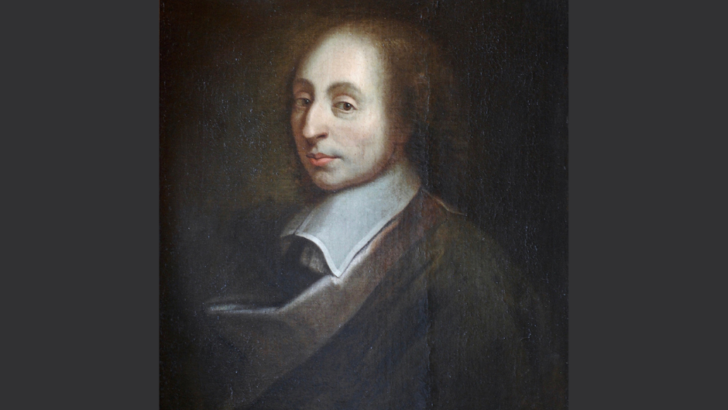A Summer with Pascal
Antoine Compagnon, translated by Catherine Porte (The Belknap Press / Harvard University Press, £19.95 / €23.60)
Pensées
by Blaise Pascal, translation edited by Pierre Zoberman with an introduction by David Wetsel, with notes by both (Catholic University of America Press, £29.99 / €35.50
Pope Francis published an Apostolic Letter in June 2023 marking the 400th anniversary of the birth of Blaise Pascal. As commentators noted, here we had a Jesuit Pope endorsing and praising one of the Jesuits’ most famous critics.
Pope Francis did not commend Pascal for his Provincial Letters published in 1667 and still in print. (I noted five English editions in Amazon.) The work commands attention as a classic of French prose; a work that extended the possibilities of the language with its wit, satire and rhetorical force.
I doubt many read it for its excoriating criticism of 17th century French Jesuits for their casuistry that reduced the tension between moral teaching and social practices, making the world a comfortable place for the rich, the powerful, and the well-to-do. Though some may be attracted by the intricacies of the relationship between nature and grace in the economy of salvation that lay behind Pascal’s dispute with the Jesuits.
Nor was it for his mathematical genius and skill as an experimental physicist that placed him in the forefront of the scientific revolution that together with religious and political upheavals gave us the modern world.
Teachings
The world that this displaced had given us a home in the natural order. Happiness lay in recognising that order, worshiping its Author and obeying its imperatives. In the new world, we are not part of nature but its observers. We should learn from Pascal because he makes the message of the Gospels compelling in this new landscape.
Pascal tells us that we find ourselves in three orders, each distinct, each with its own dynamic, each with its own motivations. These are the carnal order, the order of the intellect, and the supernatural order of charity. The carnal is the world of power; its heroes are kings, generals, the rich. In these egalitarian times, we may think of it as the everyday world where we follow the scripts that win us the esteem of our fellows, all the while, fixated, with a mixture of envy, jealousy and hatred, on the celebrities whose doings fill the media.
“He resolved to make this world real for those indifferent to God, contemptuous of Christianity”
The order of the intellect answers our need to understand the world. In it we rejoice in the achievements of the scientists, the philosophers, the scholars who direct us towards the truth, valued for its own sake.
On the night of November 23, 1665 Pascal had an intense experience of the order of charity where the gift of grace brings us into the presence of God and his realm of unconditional love. He resolved to make this world real for those indifferent to God, contemptuous of Christianity, who supposed all that human life could offer was to be found in the other orders.
He set about compiling notes, reflections, observations, to this end. Suffering from ill-health for all of his life, he died on the August 18, 1662, aged 39, the treatise for which, we suppose, the notes were assembled uncompleted. They were, however, eventually published in what became his most famous work, Pensées in 1670.
Wretched
The wretchedness of the human condition is a central theme of the Pensées. Look at the expanding shelves of self-help books in our bookshops, observe the mushrooming growth of the therapy industry for contemporary evidence. We seek diversions in the vanities of the carnal order or in the pointless curiosity of the intellectual.
Yet our dissatisfactions with ourselves, our relationships, our world, keep surfacing. Pascal invites us to recognise in our wretchedness a sorrow at the absence of a fulfillment we sense could be ours. It is only in the order of charity that we can understand the gap between what we are and what we could be. It is only there that we can learn how we can work to close it.
“Its forty one short chapters are an insightful read for those acquainted with Pascal and an excellent introduction”
I suspect many find the Pensées a challenging read. Certainly, I did, even with the help of the translation of the definitive French edition, with its background information, notes and guide.
It is not that the individual thoughts are difficult to decipher. Pascal’s prose is crystal clear. It is, I suppose, rather like being presented with the ingredients of a cake, each of which is excellent; what is missing is a sense of the cooked cake.
This is where Compagnon’s short book makes a valuable contribution. Professor Compagnon is professor of French and Comparative Literature at Columbia University, Professor emeritus at the Collège de France and a member of the Académie Française. He was commissioned by the radio station France Inter to present a series of fifteen minute programmes to run throughout the summer.
Now published as a summer with Pascal, its forty one short chapters are an insightful read for those acquainted with Pascal and an excellent introduction for those taking up Pope Francis’s recommendation to attend to this great thinker who speaks to the spiritual needs of our time.


 French philosopher
Blaise Pascal is depicted
in a 1691 portrait now
held in the Palace of
Versailles in Versailles,
France. Photo: Courtesy
French Ministry of
Culture)
French philosopher
Blaise Pascal is depicted
in a 1691 portrait now
held in the Palace of
Versailles in Versailles,
France. Photo: Courtesy
French Ministry of
Culture)